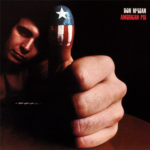
Ever been to a quiet, classy restaurant with your sweetie? White tablecloth – pressed napkins – two candles – rose in a vase. It’s relaxing just imagining it. Your well-dressed waiter appears and gives you the evening’s specials from memory. After taking your wine order, he leaves to allow you to choose your evening meal. You two are taking in the atmosphere: Low lights – smooth jazz in the background – and staring into the eyes of the only person you want to be with, in this setting.
As you begin your long-awaited conversation, the waiter returns to pour your wine and take your entrée order. He disappears and you continue to talk together, alone. The waiter returns to ask for a clarification, which you politely give. He leaves, your conversation resumes.
The waiter returns to repour your water glasses and asks how the wine tastes. You give him a positive nod. He then puts down his water pitcher, pulls up a chair and begins to explain the differences between California wine and Italian wine. He leaves again. You try to resume your conversation only to be interrupted again by the waiter serving the appetizers. He then gives you a full description of where the pigs, used in your bacon-wrapped appetizer, were raised and fed. He leaves. You try to remember where you left your conversation, only to be interrupted again by the delivery of your entrees. This time the waiter doesn’t leave. He sits in the chair he previously pulled up, watches you eat, and gives you factual information of how the chef prepared your meal.
The point of your evening is lost. The interruptions have broken the intimate conversation you came to enjoy.
Worship can be like that.
On Sunday, at church, the musicians have chosen a great set of songs. They tastefully lead you, the worshiper, to a place of intimacy, devotion, and readiness to receive something spiritual. You are poised. You are ready. Like the soft jazz in the restaurant, the keyboardist is padding quietly.
Suddenly, the associate pastor jumps on the stage: “Everybody having a good time? Hey! How many of you have signed up for the All-Church Retreat? Lemme see the hands. Woo-hoo! Also, we need more workers in the nursery. It’s a great way of serving and you’ll be blessed. Sign up in the lobby. And for anyone who’s into communion, make sure you grab a wafer pak in the baskets by the doors at some point during the service. Now give someone a HIGH FIVE!”
I call this WORSHIP INTERRUPTUS. It happens too often.
Back to the restaurant: You came to have a meaningful, intimate experience with the love of your life – only to have it shanghaied by an obnoxious waiter.
Back to the church: You came to have a meaningful, intimate experience with the Love Of Your Life (Jesus Christ), only to have it shanghaied by a leader who fails to understand the importance of FLOW OF SERVICE, PLATFORM ETIQUETTE, INTIMACY VERSUS INTERRUPTUS.
When we as platform leaders take our people to a vertical point in time – a moment of spiritual readiness – and then immediately reverse that moment, we jerk our congregants from vertical to horizontal – from heaven to earth – from God to one another – from one another to an annoying “waiter” on the platform.
This isn’t rocket science. Yet, its frequency is disturbing.
The Apostle Paul admonishes his confused congregants and frustrated leaders at the church in Corinth: “All things should be done decently and in order.” (I Corinthians 14:40) King Solomon understood the bigger picture: “There is a time to weep and a time to dance; a time to keep silent and a time to speak.”
“Oh, I know,” church leaders say. “Where to put the announcements is a constant struggle.” There are many solutions to this problem and one size does not fit all. But wherever we put announcements, we must not lose sight of the larger purpose of our gathering: to lead the sheep to the living water, so they can actually drink it.
“For everything there is a season, a time for every activity under heaven.” Ecclesiastes 3








Well said, Danny. In my experience it is usually the worship leader himself who won’t stop talking. I do consider it an interruption if I am in a set aside time designated for corporate worship. It seems reasonable to expect this to be a time for the congregation to connect with God in focused way. My favorite worship leaders seem to be worshiping WITH me. Others seem to be more interested in expressing their thoughts TO me. Between every song.
Having said this, you are correct that one size does not fit all, imo. Congregations are not all the same. Some congregations have been “trained” to expect a concert-like experience where they sit and watch. Some congregants may be unsure about how to go about engaging with God. Of course there is a place for worship leaders to call to and inspire to worship. But I think there is also a place for us as worship leaders to then get out of the way, and stop re-directing attention to ourselves.
Scott – Well said. It really is a case of “congregational conditioning.” We are trying to encourage leaders (pastors and worship) to RECALIBRATE what they are doing. Asking the question: “why are we doing what we are doing when we are doing it” can yield some incredible changes for the better.
Danny, thank you for addressing one of the biggest concerns I have with modern worship services! Some leaders are really good at avoiding this issue, but many seem entirely insensitive to it. Unfortunately, it’s not only announcements that interrupt worship. I have been in churches where the well-meaning worship leaders frequently interrupt the worship time to sermonize. This is just as annoying, if not more, to me. Often, the things that are said have absolutely nothing to do with what I feel the Holy Spirit is saying. Perhaps I am wrong about that, but I’d rather just let the Lord direct through the Spirit, and not a sermon within the time that is set apart for worship. As always, thanks for your insight.
Mollie, I have no idea where an entire generation of church musicians got the idea they needed to pontificate in order to be effective. Nevertheless, something as simple as announcements coming immediately after a moment of silence and devotion is a no-brainer, at least to many of us. Pray!! Thanks for your comments.
AMEN! AMEN! AMEN! It took only three weeks of experiencing your leadership before showing up on a week day to ask who was planing the worship. Never before and never since have I seen such carefully planned movement of worship with every element connected to another, and when some element seemed errant it proved not to be. I am sorry I was retired before learning so much as I had attempted such experience in my own church, but I had much to learn
Mike, thanks for your kind comments to me personally. If you’ve learned a lot, there are a lot of younger leaders who need your sage wisdom. Find the ones who will listen, and pour into them in love. Blessings.
Danny, what happens when people worship and God shows up? Do you think worship is a window to intimacy with God? What happens when a person, pastor or congregation open that window and the Wind comes in? Consequences of worship?
Hodges, Yes, worship is one window to intimacy with God, both corporately as well as individually. When God’s power is evident and moving everyone knows it. The key is to have leaders who understand how not to quench His power and presence. Reference the duties of Zachariah in Luke 1. He performed his worship duties his whole life to a God whose manifest presence never showed up (for 400 years). One day the angel came. Nothing was the same that day forward. Many believers perform their worship duties to a God whose presence is not evident. I want more.